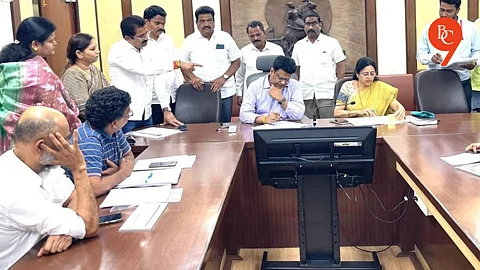

Pune: Residents of Manjari and Shewalewadi, two villages recently merged into the Pune Municipal Corporation (PMC), have expressed frustration over poor civic amenities despite contributing significantly to the city's tax revenues. A delegation of local representatives and activists, led by Member of Parliament Medha Kulkarni and former Shewalewadi deputy sarpanch Rahul Shewale, recently met PMC Commissioner Nawal Kishore Ram to raise their concerns.
The delegation highlighted that although PMC collects crores in property taxes from these areas, estimated at around ₹80 crore, basic services such as water supply, drainage, roads, and street lighting remain inadequate. “For the past four years, PMC has failed to take any concrete steps. They provide token funds of just ₹5–10 lakh while core infrastructure issues remain unresolved,” said former Shewalewadi sarpanch Pratima Shewale.
One of the most pressing concerns is the water supply in Shewalewadi. While the civic body has sanctioned ₹34 crore for a water scheme following instructions from then Chief Minister Devendra Fadnavis, no work has started yet.
Residents also pointed out the absence of a proper sewage network along the Pune-Solapur highway, due to which wastewater from households and commercial units is being discharged into the stormwater drains built by the highway authority. This has caused frequent blockages and sewage overflow onto the highway, creating health hazards and deteriorating the area’s livability.
MP Medha Kulkarni urged the civic administration to immediately implement the water supply project and construct a new drainage system. She also recommended that the property tax (shastikar) be waived for residents in these newly merged areas, considering the lack of civic services.
Commissioner Nawal Kishore Ram assured the delegation that he is aware of the issues and takes them seriously. He stated that the administration would soon conduct on-ground inspections in Manjari and Shewalewadi to understand the situation and initiate necessary corrective measures.
The delegation included social activists and local leaders such as Vijay Kodre, Sanjay Kodre, Chandrakant Shewale, Balkrishna Shewale, and Mangesh Shewale.
